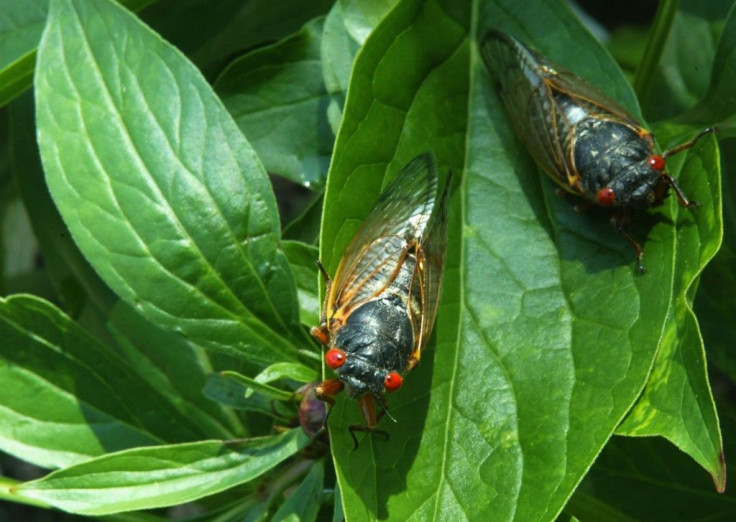Cicada Invasion: Millions Of Americans Brace For Brood X Swarms In The Billions
Eighteen states in the South and Northeast are preparing for the arrival of billions of cicadas from the 17-year Brood X. The cicadas can be fascinating, annoying or even tasty depending on your perspective, but aren’t a significant risk to plant or animal life, the New York Times reported Monday.
While annual cicadas are common in Southern states like Texas, larger broods hibernate for long stretches before coming out to mate. Brood X emerges once every 17 years to feed on tree sap and reproduce, numbering over ten billion strong.
The Mid-Atlantic should see them by the third week of May. The specific time depends on soil temperature, with 64 degrees being optimal. The cicadas use freeze-thaw cycles to keep track of how long they’ve been underground.
The cicadas aren’t dangerous except for small trees and shrubs. Matt Kasson, an associate professor of forest pathology and mycology with West Virginia University, told the Times they were better viewed as one of nature’s wonders than as a threat.
“They’re just really big and awkward,” he said. “... It’s really something to marvel at.”

They do produce one potential hazard: Their mating call can be loud, and when they gather in large groups standing too close for too long can be harmful. Sound of up to 90 decibels has been recorded under trees filled with singing cicadas. A motorcycle produces 95 decibels, dangerous to unprotected hearing after 50 minutes of exposure.
Brood X is expected to stay above ground for four-to-six weeks before the next generation returns to the earth. That cycle will reemerge in 2038.
For the particularly adventurous, cicadas can be eaten, and are high in protein while low in carbs and fat. Their taste is comparable to tofu, although Chris Simon, a professor of ecology and evolutionary biology with the University of Connecticut, said it would be a shame to eat them.
“I feel sorry for them, growing up for 17 years, then someone eats them,” she said.
© Copyright IBTimes 2025. All rights reserved.





















